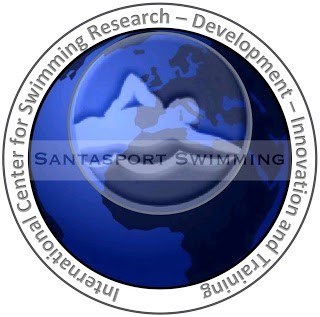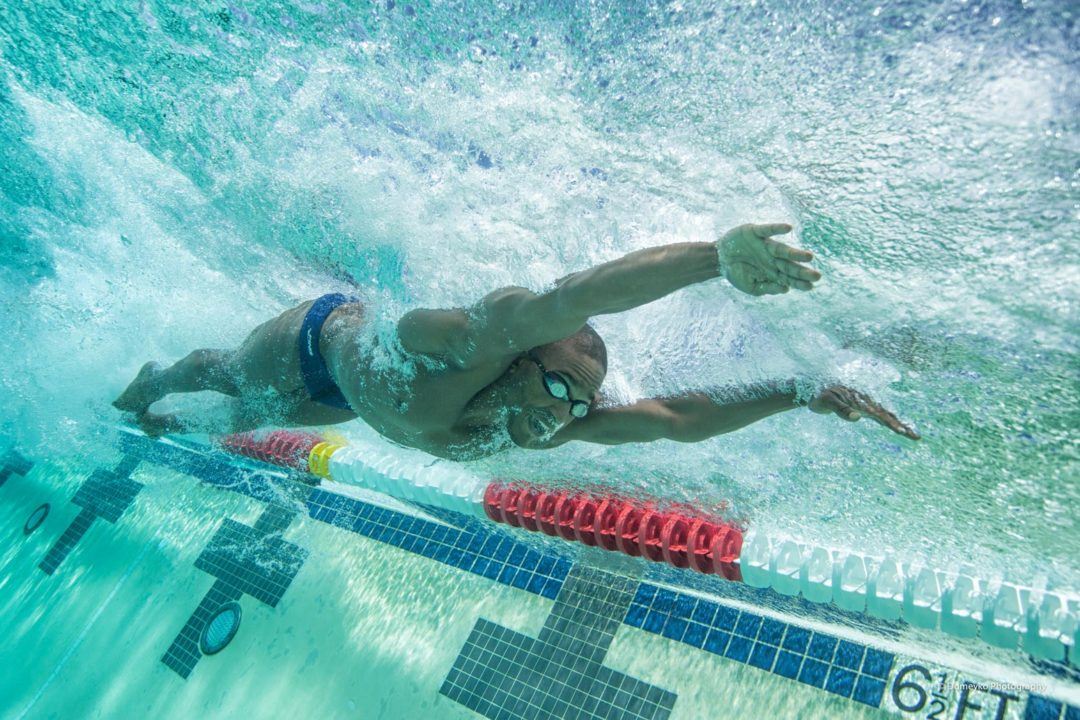Courtesy: Jakka Shemeikka
As a part of our Research, Development and Innovation functions, Olympic Training Center Rovaniemi is running a competitive swimming development program called ‘Modern Dryland Training’. It started from a simple idea of creating better solutions for dryland training for swimmers and coaches globally. Along the way, the focus has shifted to a bigger picture. Today it seems paramount, that we also raise topics that have a modern approach about the synergy of dryland and pool training.
There is a saying in swimming that is almost a myth: “Feel for the water”. Even though there is no single definition for this saying, it seems that everyone involved in swimming automatically understand what is stands for. Sometimes the connection is so strong that swimmer seems to be one with the water. This is how we see our elite swimmers, fluent and effortless in the water.
Every now and then, you can hear a swimmer saying that they have lost the feel for the water, or that the swim feels really sticky. For almost two years now, we have been studying this phenomenon. What we have learned is that besides the feel for the water, swimmer should think about the rhythm, because without it you are not able to feel. Rhythm can also been seen as coordination.
When you look at a swimmer from a rhythm/coordination point of view, you can understand their performance capabilities better. It creates a better understanding of how elite swimmers do what they do. It can also explain what they still don’t do, and, as the best of them still push boundaries forward, we have not seen the fastest performances yet. Enhanced understanding of these abilities makes them also teachable. As we are just about to start a research project looking deeper into this, we feel excited to start creating a swimming analysis system that will give us a completely new understanding of performance.
In making new advancements we have to remember that it is not all about the high performance side of the sport, but how we influence our juniors growing up towards their best performance. Skills should be built to a lasting foundation, just like conditioning so that we can reach new levels of performance. Here is a great exercise to assess and create a better rhythm and coordination abilities.
Current state of swimming
We are two years away from the 2020 Olympics and despite the new world records, the overall advancements in swimming have not been as good as hoped. Here is a short review where we are currently:
A + B + C + D= Performance (and all the variables that led to it)
In this equation, the things that make the performance are unknown. All we know is the end result, which is the same as what happened. Therefore, this equation represents all current competition analyses. The downside of this is that it leaves us guessing what actually made the performance. Yes, we do know the variables like frequency, DPS, turn time, reaction time, etc., and as important they are they are, that is still not the complete answer.
Stroke cycle analysis + B + C + D = Performance (and all the variables that led to it)
To be able to develop further and understand the performance better, we need to resolve the A, B, C and D. There are few solutions in the market that have made a good effort to advance in creating a better understanding. As they have developed nicely in their process, they are still stuck resolving only one fourth of the puzzle. Let’s keep pushing and finding the remaining answers.
Olympic Training Center Rovaniemi is one of the six Olympic Training Center’s in Finland. Together with a diverse network of Universities, sports federations and associations, research institutes and other experts, we are able to offer a wide level of education in multiple fields of sports and well-being as well as in different sports.
Santasport Swimming is growing International research development and innovation program for swimming. Our goal is that in the next five years we will run research on both learn to swim and high- performance swimming using our previous experience and soon to be built new aquatic facility. Thru our research work, we are hoping to offer new insights on swimming development.


Olympic Training Center Rovaniemi
